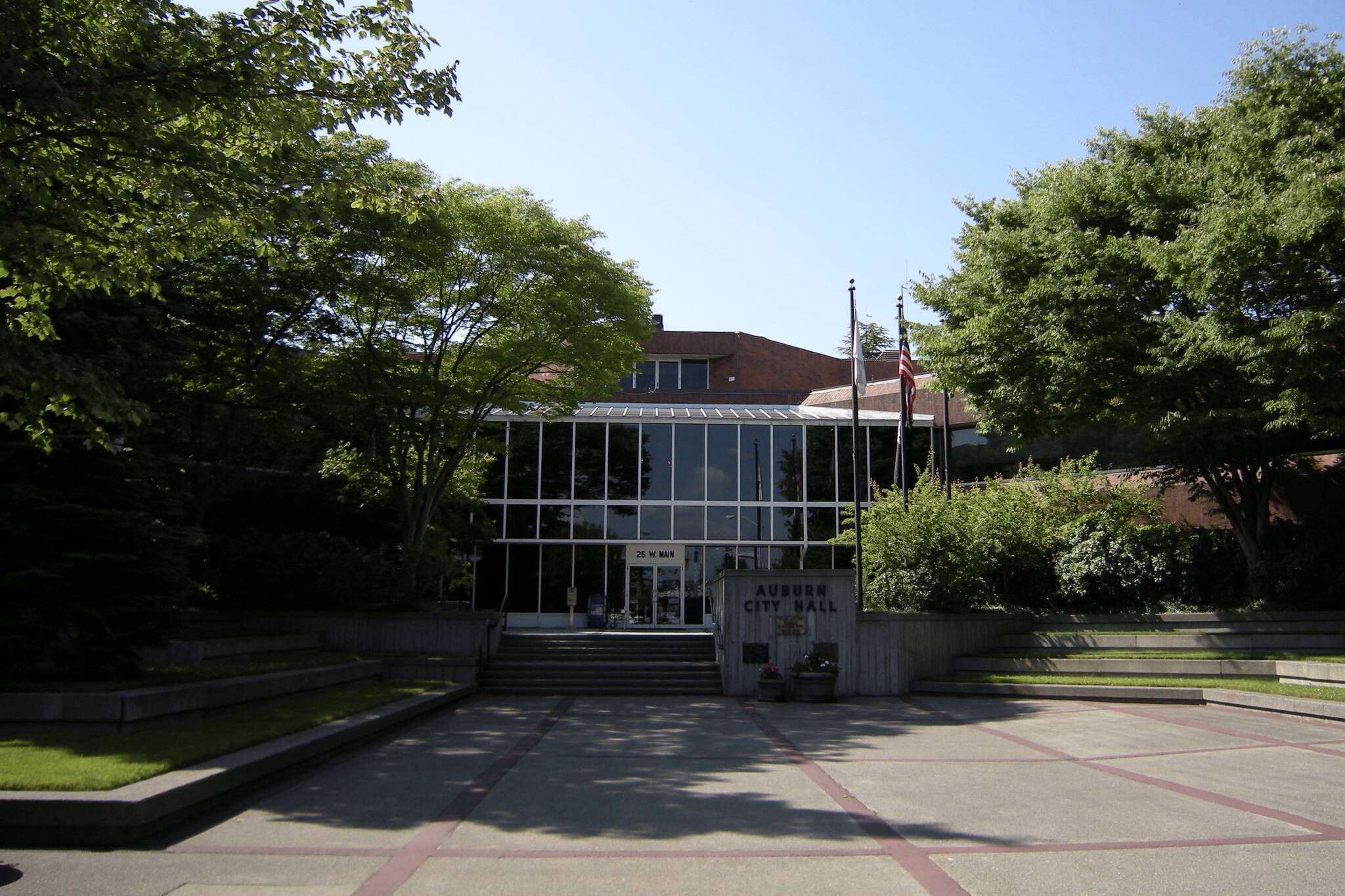The Auburn City Council appears ready to move on a series of changes to city code that will address concerns about the handling of leave accruals for the Auburn mayor.
The issue dates to a meeting in November 2022, when members of the Auburn City Council were taken aback during a routine updating of the city code to ensure compliance with state law to find language on the books that revealed a financial exposure and potential room for abuse.
Exposure that could have obligated the city to compensate current Mayor Nancy Backus up to $150,000 in unused vacation leave had she left office at that time. To date, Backus has accrued approximately 1,042 hours of unused vacation leave and approximately 836 hours of unused sick leave.
To reduce the risk for the city, council members set aside the ordinances for additional review and created a special committee for the sole purpose of investigating and suggesting improvements. That committee, headed by Councilmember Kate Baldwin, recently presented the proposed amendments, to include a clarification of the proper role of the city’s Independent Salary Commission in setting the salaries of Auburn’s elected officials.
At the May 8 council study session, council members agreed they would vote the amendments up or down on May 15. That meeting was cancelled, however, and the vote has now been bumped to the first council meeting in June.
Backus had requested on May 1 that the agenda item be moved to a date when she could be there, but she was not present for the May 8 work session.
Here’s what will be before the council on that date.
The Committee found that in setting the Independent Salary Commission’s purpose, the code’s use of the term “compensation,” could be interpreted to include both mayoral salary and benefits like sick leave, vacation, etc. In practice, however, the Committee determined that the Independent Salary Commission had not been voting on vacation leave, sick leave or management leave benefits.
The updates in the ordinance seek to clarify that the commission’s only job is to set the salaries of elected officials, and that non-monetary employment benefits and leave allocation decisions do not fall within its purview.
The second ordinance that will come before the council sets any Auburn mayor’s vacation leave and introduces a vacation leave cap of 364 hours. It sets a graduated, vacation leave accrual rate based on the number of years an Auburn mayor has served, as follows: At the start date of four years, it would allow for vacation leave of 96 hours per year; for 5-9 years, it would allow for 120 hours per year; for 10-14 years, 144 hours per year; 15-19 years at 168 hours per year; 20-24 years at 192 hours per year; and 25 years at up to 208 hours per year.
In addition, the amendments would allow for a full payout up to the new cap for mayoral sick leave by introducing a sick leave cap of 960 hours, set at the accrual rate of 8 hours per month. This would a establish a graduated payout of sick leave based on mayoral tenure.
The years of service of a city mayor will determine the percentage of accrued sick leave hours to be paid as follows: 0-4 years, 0% of accrued hours; 5-14 years for 25% of accrued hours; 15-24 for 50% of accrued hours; and 25 or more years, for 100% of accrued hours. All accrued vacation leave beyond 182 hours will be paid out within 30 days.
“For those graduated rates affecting vacation leave and sick leave, we’re aligning that with unaffiliated staff, so we’re bringing that position in line with what we see for other staff in the city,” Baldwin said. “And likewise for the vacation leave cap, 364 hours would be established based on a mean from our research looking at the comparative rates of our directors across the city. This does bring us in line with other cities we looked at.”
An option affecting existing accrued time would create a separate “frozen bank” to hold the mayor’s accrued vacation leave and sick leave hours and lock the value of those hours to the current salary rate.
To date, Mayor Backus has accrued approximately 1,042 hours of unused vacation leave and 836 hours of unused sick leave.
The option would allow the mayor to spend down hours in the bank, as needed, for the remainder of the current term, and allow for payout of any remaining hours in the bank at the end of the current term at her rate of pay at the time the ordinance is adopted, not her rate of pay at the end of her current term.
Going forward, new vacation leave and sick leave accruals would be accumulated and paid out according to the amended ordinance.
Councilmember Larry Brown praised his peers “for taking up the subject beyond just a rudimentary and performative acceptance of these changes moving on. I just want to compliment my fellow council members that took this seriously.”
Brown, however, then repeated his objection “to changing the conditions under which the mayor works” in the middle of her term. “I think that that’s wrong. I think we could have the same effect, which I think is appropriate, if we implemented this all at the end of the mayor’s term. I understand others don’t necessarily feel like that, but it certainly would have been consistent with how we treated the two previous mayors.”
Councilmember Bob Baggett defended the process.
“The whole intent of this process was once it was known about this from our council standpoint … was to make this fair and equitable for our taxpayers, the people that elected us to watch over their money, their taxes, and at the same time to make it as fair and equitable as possible for our mayor. There was no intent to (gain) any advantage one way or another. It was just fair and equitable on all parties.”


